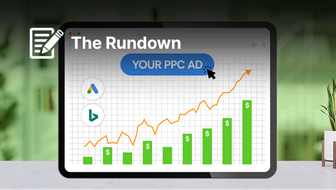This week’s Ask An SEO question comes from Renee in Iowa, who writes:
“I read somewhere that you should submit your sitemap every month. When you provide an XML URL, isn’t it just that – a URL and therefore updates are always in place?
I’m using RankMath which generates my XML file. It didn’t seem like I was uploading a file to Google Search Console or Bing Webmaster tools (actually, I let Bing import form Google Console).
Maybe the confusion is that the HTML file needs to be updated monthly. I would be curious to hear your thoughts on that, thank you!”
There’s a lot to unpack in here, and Renee’s question strikes a few of my nerves that I’d like to dive into.
Before I do that though I’ll just say no, you don’t have to submit your sitemap every month.
Now, let’s address some common questions and misconceptions about sitemaps before we go into more detail on Renee’s question.
What’s The Value In XML Sitemaps?
XML sitemaps are a big pet peeve of mine.
It seems like 75% of the 3rd party SEO audits I see these days all start off with “you don’t have an XML sitemap, create one!”
That can be good SEO advice, but most of the time it’s just another task that won’t help the client get any more traffic.
XML sitemaps aren’t a ranking factor.
Leaving aside hreflang and other stuff, their main use is for discovering links.
That means if you have a really good site architecture and code your site using all the best practices, search engines most likely discover all your links without needing a sitemap.
For many sites with technical problems that affect crawling though, they can be a lifesaver.
That context is important, meaning an XML sitemap might be a really important SEO fix, or it might not be needed at all.
If you’re an SEO professional including that in your audit without the context, you’re doing your client a disservice.
Ok, I Need An XML Sitemap, How Often Do I Submit It?
Ideally, you only need to submit your sitemap once (per search engine) in the search console.
After that, they will keep re-crawling it on a schedule that they think makes sense based on what they know about your site.
You should also reference your sitemap in your robots.txt file.
There’s really no reason to keep submitting it after that.
If you’re doing a major redesign and update and want to re-submit it for peace of mind, go for it. There’s no harm.
… Like A Knife
One of my most common sayings in SEO presentations is: “___ is like a knife. You can use it to butter your bread, or stab yourself” and XML sitemaps are no exception to that rule.
While XML sitemaps can be a great way to get URLs indexed, they can also be dangerous if you don’t stay on top of them.
Most websites I look at have XML sitemaps that contain several errors.
Many of the URLs don’t get automatically updated or removed when the site is changed, so they end up submitting a sitemap full of 301 redirects or pages that don’t exist anymore (404).
Years ago at a conference, a Bing rep told me that if a couple of the URLs in your XML sitemap had a status other than 200, then Bing assumed your sitemap was out of date and ignored it.
I have no idea if that’s still the case or what that threshold is, but it makes sense.
I’ve seen too many SEO experts make a change to their URLs, then cause themselves all kinds of issues by leaving the old URL in the XML sitemap.
What About HTML Sitemaps?
For starters, you shouldn’t have to worry about submitting an HTML sitemap.
I don’t hate HTML sitemaps, but the same caveat about making sure you update it whenever you do other changes still applies here.
You don’t want to send conflicting messages to search engines by including your non-canonical versions in some old sitemap you forgot about.
Remember, HTML sitemaps are essentially just another crawl band-aid though.
If your site architecture is perfect and your code is all clean and crawlable, you won’t need one.
Most clients I work with use the HTML sitemap as a quick fix because of some weird UX issues preventing search engines from cleanly getting to pages.
It works, but it’s not the best way.
I hope this clears up a lot of questions about XML sitemaps.
In a perfect world, we wouldn’t need them.
In the real world though, XML sitemaps can be a powerful tool or a great way to cause a bunch of issues with your website.
More resources:
- How to Optimize XML Sitemaps: 13 SEO Best Practices
- 7 Reasons Why An HTML Sitemap Is Still A Must-Have
- Core Web Vitals: A Complete Guide
Featured Image: BestForBest/Shutterstock





